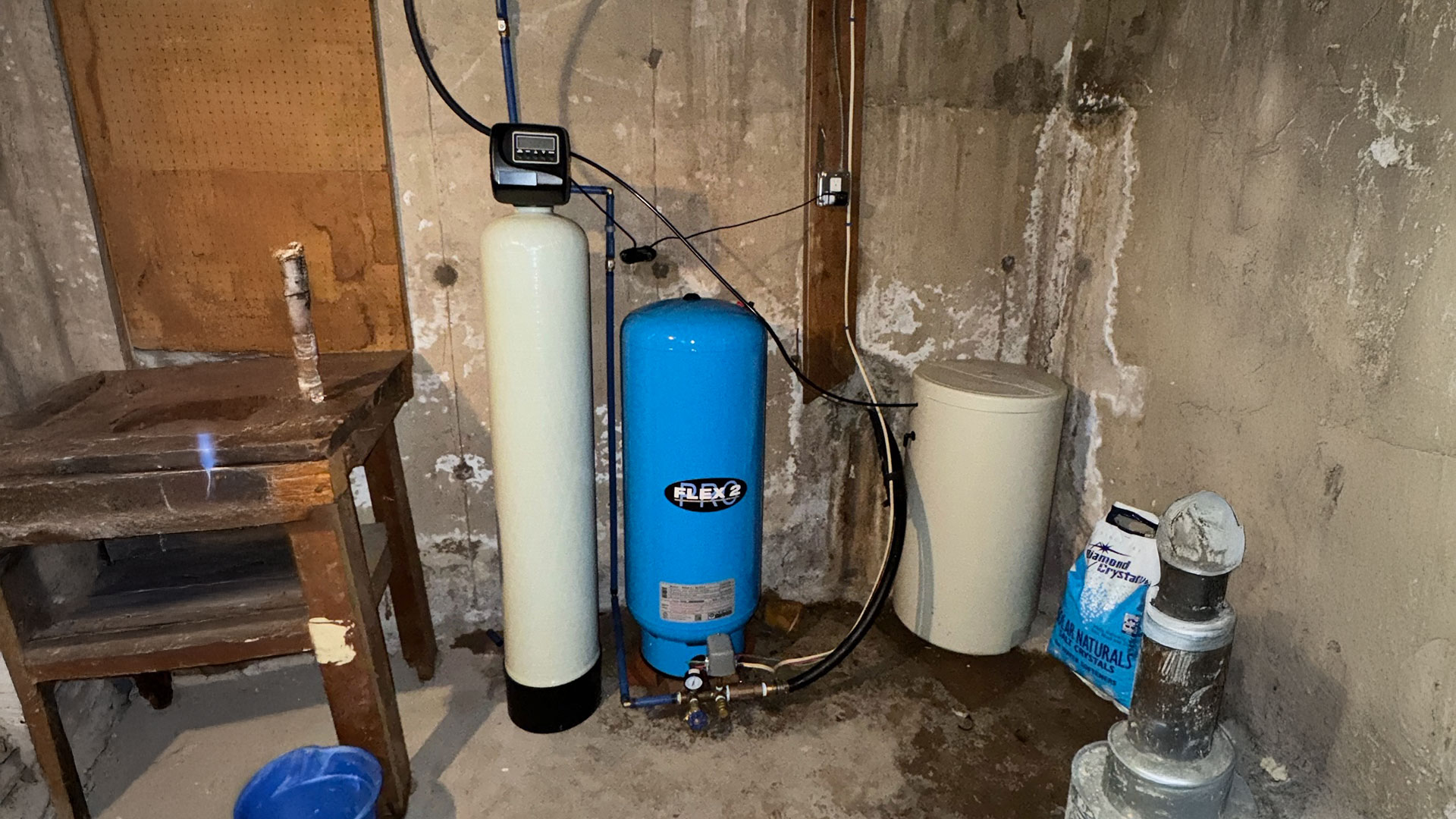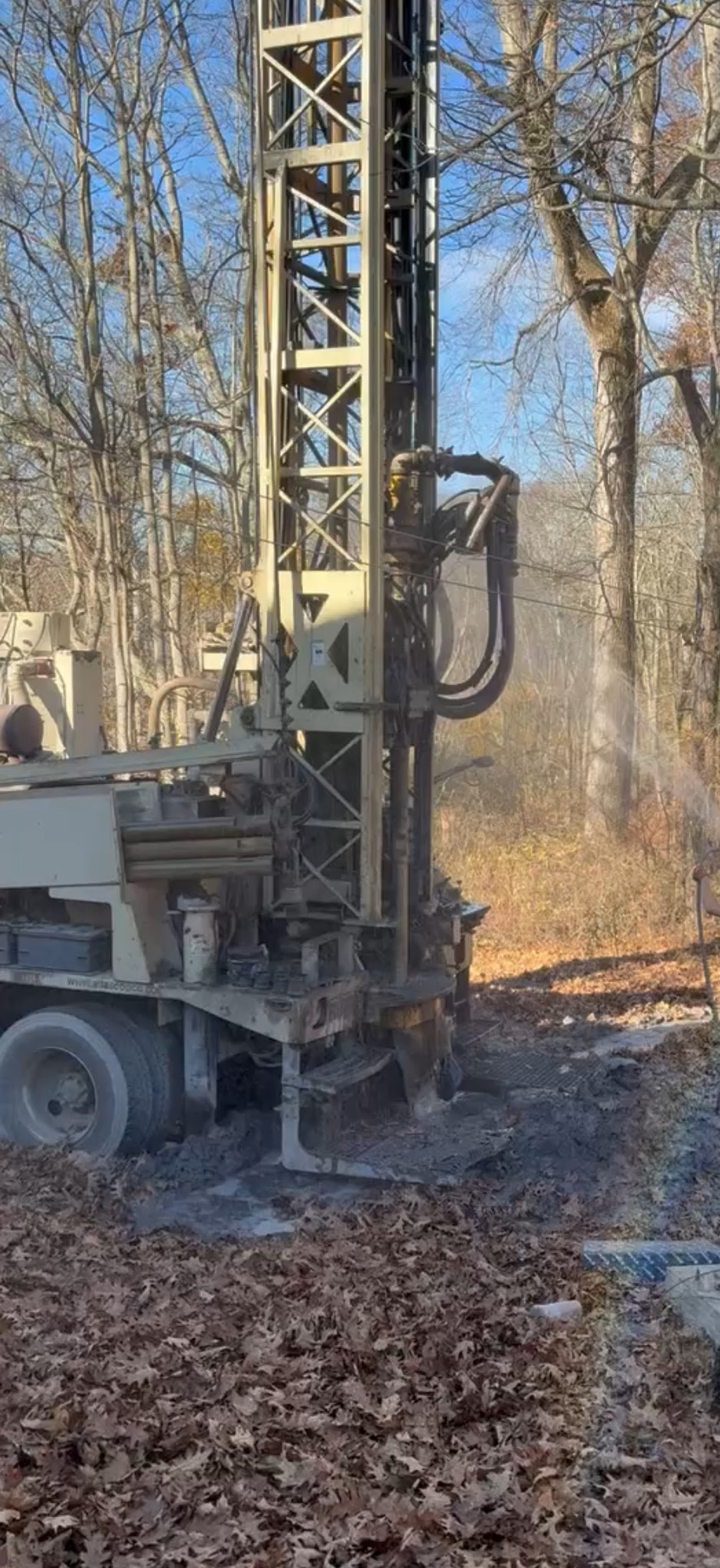Well Plumbing Services
Is your well system giving you trouble? At bluefrog, we understand the intricacies of well systems and offer a comprehensive range of services to keep your water flowing reliably and safely. We’ve got you covered, from installations and repairs to water quality testing and system upgrades—and we serve all of Central Connecticut.

Our Comprehensive Well Services
Well Pump Services
A properly functioning well pump is essential for a consistent water supply.
We offer:
- Installation of submersible and jet pumps
- Well pump repair and troubleshooting (no water, low pressure, short cycling)
- Pump replacement and upgrades for efficiency
- Booster pump installation for better pressure
Well Inspections & Testing
Ensure the health and performance of your well with our thorough inspection and testing services:
- Home sale/pre-purchase well inspections
- Well system performance evaluations (flow, pressure, depth)
- Well-camera inspections for diagnosing issues
- Static and drawdown level testing
Water Quality Testing & Treatment
Clean, safe water is our priority.
We provide:
- Bacteria, iron, manganese, pH, and hardness testing
- Water filtration system installation (whole-house filters, reverse osmosis)
- Water softener installation and maintenance
- UV purification systems for bacteria elimination
Pressure Tank Services
Maintain consistent water pressure with our pressure tank services:
- New pressure tank installation
- Troubleshooting and repairing low-pressure issues
- Bladder replacement and system optimization
Well Rehabilitation & Cleaning
Restore the flow and performance of your well with our rehabilitation and cleaning services:
- Well-shocking and disinfection (removing bacteria and biofilm)
- Well redevelopment to restore flow and performance
- Sediment and mineral buildup removal
Emergency Well Services
Facing a no-water emergency? We’re here for you 24/7:
- 24/7 no-water emergency service
- Rapid troubleshooting and temporary water solutions
- Emergency pump replacements
Well System Upgrades & Efficiency Improvements
Improve the efficiency and reliability of your well system with our upgrade options:
- High-efficiency well pump replacements
- Variable frequency drive (VFD) pump upgrades for consistent pressure
- Upgrading outdated or inefficient well components
Well Abandonment & Decommissioning
Properly abandon and decommission unused wells to protect the environment:
- Sealing unused wells per state and local regulations
- Proper documentation and compliance for abandoned wells
Common Questions About Wells and the Answers
- Schedule routine maintenance and inspections.
- Install a water filtration or treatment system if needed.
- Protect the well from surface contamination.
- Use water efficiently to prevent overuse and strain on the system.
- Ensure proper drainage around the well to prevent flooding and contamination. (9)
- What are the most common issues that come up with wells?
- Low water pressure due to pump failure, clogged pipes, or sediment buildup.
- Water contamination from bacteria, iron, or other contaminants.
- Air in the plumbing system causing sputtering faucets.
- Well pump cycling on and off frequently, indicating pressure switch issues.
- Well running dry due to drought or overuse.
- In Connecticut, well owners must comply with state well construction and maintenance regulations set by the Department of Public Health (DPH).
- New wells must be drilled by a licensed professional.
- Certain areas may require water testing for real estate transactions or compliance with state standards.
- Abandoned wells must be properly sealed.
- Keep hazardous chemicals away from the well.
- Ensure the well cap is secure and intact.
- Keep the area around the well clean and free of debris.
- Regularly inspect and service the well and pump system.
- Test water quality annually and treat if necessary.
- Signs you have a well:
- A well cap or casing visible in your yard.
- No monthly water bill from a municipal provider.
- A pressure tank inside your home.
- Your property has a well record from the state.
- You should test well water at least once a year, but more frequently if you notice changes in taste, color, or smell.
- Regular testing is essential because:
- Bacteria and nitrates can enter the well from surface contamination, especially after heavy rain or flooding.
- pH and mineral levels fluctuate over time, affecting plumbing and water quality.
- Nearby construction or land use changes can introduce new contaminants.
- Health risks: Contaminated water can cause stomach issues, neurological problems, or long-term health effects.
- A basic annual test should check for bacteria, nitrates, pH, and minerals. More in-depth tests may be needed based on location and previous water quality results.
- Brown well water can be caused by several factors, each requiring different actions:
- Iron or manganese buildup: Common in wells, especially if water sits in pipes too long. Solution: Install an iron filter or water softener.
- Sediment or rust: Caused by corroded pipes or well casing. Solution: Flush the system and inspect for pipe damage.
- Organic material or bacteria: Can enter through cracks in the well or after heavy rainfall. Solution: Test for contamination and disinfect the well if necessary.
- Recent well work or repairs: Disturbances can temporarily introduce sediment into the water. Solution: Run the water for several hours to clear it.
- Testing the water is important to determine the cause before taking corrective action.
- Well pumps typically last 10 to 15 years, but their lifespan depends on:
- Usage: High water demand can wear out a pump faster.
- Pump type: Submersible pumps last longer (10-15 years) than jet pumps (7-10 years).
- Water quality: Hard water or sediment can wear down pump components.
- Signs you may need a replacement:
- Low or inconsistent water pressure.
- Spitting or sputtering faucets.
- Increased energy bills (a failing pump has to work harder).
- Pump runs constantly or cycles too frequently.
- Replacing a failing pump before it completely breaks down prevents total water loss and potential damage to the system.
- A well typically lasts 30 to 50 years, but this depends on factors like:
- Ground conditions: Some areas have more corrosive soil or water, which can shorten the well’s lifespan.
- Well depth and construction: Deeper wells generally last longer as they tap into more stable groundwater sources.
- Water usage: Excessive water use can strain the well and pump, leading to earlier failure.
- Maintenance: Regular testing and servicing can extend a well’s lifespan by preventing major issues before they worsen.
- A well should be serviced at least once a year to ensure it is functioning properly and to catch potential problems early.
- Annual servicing includes checking the pump, pressure tank, electrical components, and well cap for damage or wear.
- Regular maintenance helps prevent sudden failures, which can be costly and leave you without water.
- Bacteria, sediment, and contaminants can build up over time, so servicing ensures the water remains safe for drinking and household use.
Service Guarantee + Insured, Bonded, Certified
Quality Guarantee
We stand behind our work and guarantee your satisfaction. Our professional staff is ready to answer your questions, educate you on your plumbing issues, and ensure that you are comfortable with the decisions you make. It’s the bluefrog way!
Insured, Bonded, and Certified
Our plumbers have over 30 years of combined experience unclogging drains, fixing toilets, repairing slab leaks, water lines, sewer lines, and more. We are a fully licensed and insured plumbing company headquartered in Meriden.
Highly Rated
Having serviced many Connecticut plumbing customers in the last several years, we have established an excellent reputation and are highly rated on many review sites! Check out our reviews and what our customers are saying about us!





